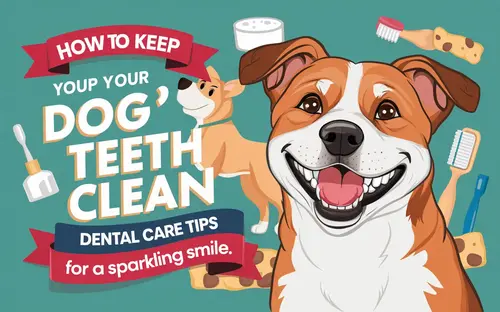As dog owners, we often prioritize our furry companions’ physical exercise, nutrition, and overall well-being. However, one crucial aspect of their health that is frequently overlooked is dental care. Just like humans, dogs are susceptible to a range of dental issues, including plaque buildup, tartar formation, gum disease, and even tooth loss. Fortunately, with a proactive approach and the right techniques, you can help maintain your pup’s pearly whites and ensure a healthy, pain-free smile for years to come.
The Importance of Canine Dental Care
Understanding the Risks
Poor dental hygiene in dogs can lead to a variety of problems beyond just bad breath. Plaque and tartar buildup can cause gum inflammation, tooth decay, and even infections that can spread to other parts of the body. Dental disease has been linked to serious health issues such as heart, liver, and kidney problems, making it imperative to prioritize your dog’s oral health from an early age.
Recognizing the Signs
If you notice any of the following signs in your dog, it may be time to address their dental care routine:
- Bad breath
- Excessive drooling
- Reluctance to eat or difficulty chewing
- Red, swollen, or bleeding gums
- Discolored or loose teeth
- Pawing at the mouth or rubbing the face
By staying vigilant and addressing any potential dental issues early on, you can prevent more serious problems from developing and ensure your pup’s overall health and comfort.
Brushing Your Dog’s Teeth
Establishing a Routine
One of the most effective ways to maintain your dog’s dental health is by brushing their teeth regularly. While it may seem daunting at first, introducing tooth brushing as a positive and rewarding experience from an early age can make it a routine your pup looks forward to.
Start by choosing a soft-bristled toothbrush designed specifically for dogs or a finger brush. Gradually introduce the brushing process, offering plenty of praise and treats along the way. Aim for daily brushing, or at least a few times a week, for optimal results.
Proper Technique
When brushing your dog’s teeth, focus on the outer surfaces of the teeth, as well as the gum line. Use gentle circular motions, and be sure to brush the front and back teeth as well. Avoid using human toothpaste, as it can be harmful if swallowed. Instead, opt for enzymatic dog-friendly toothpastes that are designed to be safe for your pup to ingest.
Dental Chews and Toys
Promoting Healthy Chewing Habits
In addition to regular brushing, providing your dog with appropriate chew toys and dental treats can help scrape away plaque and tartar buildup. Look for products specifically designed for dental health, such as those containing enzymes or abrasive textures that help clean teeth as your pup chews.
However, it’s important to supervise your dog during chewing sessions and ensure they are using the toys or treats as intended. Certain hard or abrasive chews can potentially cause tooth fractures or other dental issues if used excessively or inappropriately.
Professional Dental Cleanings
The Importance of Regular Check-ups
While at-home dental care is crucial, it’s also essential to schedule regular professional cleanings with your veterinarian. During these appointments, your dog’s teeth will be thoroughly cleaned and scaled, removing any stubborn plaque or tartar buildup that may have accumulated despite your best efforts.
Additionally, your vet can perform a comprehensive oral examination, identifying any potential issues or areas of concern that may require further treatment or intervention.
Anesthesia and Safety Considerations
Professional dental cleanings for dogs typically require the use of general anesthesia to ensure the safety and comfort of both the patient and the veterinary staff. While this may raise concerns for some pet owners, modern anesthesia protocols and monitoring techniques have made the procedure increasingly safe and minimally invasive.
Your veterinarian will thoroughly evaluate your dog’s overall health and discuss any potential risks or precautions before proceeding with the dental cleaning. Trust in their expertise and follow their guidance to ensure a smooth and successful procedure.
Preventative Measures and Home Remedies
Diet and Water Additives
In addition to brushing and professional cleanings, there are several preventative measures and home remedies you can incorporate into your dog’s routine to support their dental health:
- Provide your pup with a high-quality, balanced diet to ensure they’re getting the necessary nutrients for strong teeth and gums.
- Consider adding dental-friendly water additives or gels that can help reduce plaque buildup and freshen breath.
- Offer raw, meaty bones or dental chews occasionally, as the chewing action can help remove tartar and massage the gums.
Natural Remedies
While not a substitute for professional dental care, some natural remedies can also help maintain your dog’s oral hygiene:
- Coconut oil has antimicrobial properties and can be used as a gentle, natural toothpaste.
- Apple cider vinegar can help balance the pH in your dog’s mouth and inhibit bacteria growth.
- Probiotic supplements can support a healthy gut and promote overall dental health.
As with any home remedy, it’s important to consult with your veterinarian before introducing new products or techniques into your dog’s routine, especially if they have any underlying health conditions or medication sensitivities.
By incorporating a combination of regular brushing, appropriate chew toys and treats, professional cleanings, and preventative measures, you can ensure your furry friend maintains a sparkling smile and healthy mouth for years to come. Remember, your dog’s dental health is an integral part of their overall well-being, and taking proactive steps can help prevent potential issues and ensure a lifetime of tail-wagging happiness.




